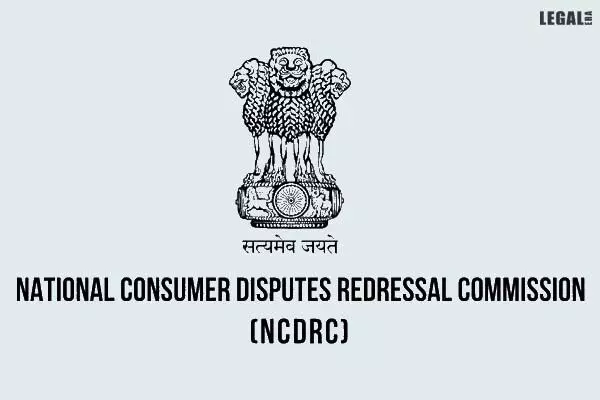- Home
- News
- Articles+
- Aerospace
- AI
- Agriculture
- Alternate Dispute Resolution
- Arbitration & Mediation
- Banking and Finance
- Bankruptcy
- Book Review
- Bribery & Corruption
- Commercial Litigation
- Competition Law
- Conference Reports
- Consumer Products
- Contract
- Corporate Governance
- Corporate Law
- Covid-19
- Cryptocurrency
- Cybersecurity
- Data Protection
- Defence
- Digital Economy
- E-commerce
- Employment Law
- Energy and Natural Resources
- Entertainment and Sports Law
- Environmental Law
- ESG
- FDI
- Food and Beverage
- Gaming
- Health Care
- IBC Diaries
- In Focus
- Inclusion & Diversity
- Insurance Law
- Intellectual Property
- International Law
- IP & Tech Era
- Know the Law
- Labour Laws
- Law & Policy and Regulation
- Litigation
- Litigation Funding
- Manufacturing
- Mergers & Acquisitions
- NFTs
- Privacy
- Private Equity
- Project Finance
- Real Estate
- Risk and Compliance
- Student Corner
- Take On Board
- Tax
- Technology Media and Telecom
- Tributes
- Viewpoint
- Zoom In
- Law Firms
- In-House
- Rankings
- E-Magazine
- Legal Era TV
- Events
- News
- Articles
- Aerospace
- AI
- Agriculture
- Alternate Dispute Resolution
- Arbitration & Mediation
- Banking and Finance
- Bankruptcy
- Book Review
- Bribery & Corruption
- Commercial Litigation
- Competition Law
- Conference Reports
- Consumer Products
- Contract
- Corporate Governance
- Corporate Law
- Covid-19
- Cryptocurrency
- Cybersecurity
- Data Protection
- Defence
- Digital Economy
- E-commerce
- Employment Law
- Energy and Natural Resources
- Entertainment and Sports Law
- Environmental Law
- ESG
- FDI
- Food and Beverage
- Gaming
- Health Care
- IBC Diaries
- In Focus
- Inclusion & Diversity
- Insurance Law
- Intellectual Property
- International Law
- IP & Tech Era
- Know the Law
- Labour Laws
- Law & Policy and Regulation
- Litigation
- Litigation Funding
- Manufacturing
- Mergers & Acquisitions
- NFTs
- Privacy
- Private Equity
- Project Finance
- Real Estate
- Risk and Compliance
- Student Corner
- Take On Board
- Tax
- Technology Media and Telecom
- Tributes
- Viewpoint
- Zoom In
- Law Firms
- In-House
- Rankings
- E-Magazine
- Legal Era TV
- Events
NCDRC Rules: Burden of Proof in Insurance Claims Lies with Insured, Not Insurer

NCDRC Rules: Burden of Proof in Insurance Claims Lies with Insured, Not Insurer
The National Consumer Disputes Redressal Commission (NCDRC), presided over by Justice Ram Surat Maurya (presiding member) and Bharatkumar Pandya (member), dismissed a review petition challenging a decision in favour of Cholamandalam Insurance Company. The Commission reaffirmed the principle that the burden of proof lies with the insured to demonstrate that their claim falls within the coverage of the insurance policy.
A private garment manufacturing and exporting company, registered under the Companies Act, 1956, entered into a contract with M/s. Fitzroy Sales Inc. USA to export garments. To protect their goods, they secured a Marine Cargo Open Policy-All from Cholamandalam MS General Insurance Company Ltd for ₹150 crore, with coverage extending until physical possession by the buyer at a New Jersey warehouse.
Following purchase orders, the company exported garments from Chennai to New York, where they were safely stored in a bonded warehouse. However, Hurricane Sandy struck North America, causing significant water damage to the garments, valued at $1,66,620.19.
The company promptly informed the insurer and filed a claim. Appointed surveyors confirmed damage to around 20,000 garments. However, the insurer cited "Free on Board" terms and denied liability since the damage occurred during storage. Ignoring legal notices, the insurer refused to settle the claim.
In response, the company filed a review petition, seeking $1,66,620.19 for the damaged goods, 18 per cent annual interest, and ₹1 crore for business loss and legal costs.
The insurance company argued that the garments were shipped under "Free On Board" terms, safely reaching New York's seaport. However, they sustained damage during Hurricane Sandy while stored in a warehouse. The insurer claimed the buyer already owned the garments, leaving the manufacturer with no insurable interest.
Citing the Marine Insurance Act, they argued the manufacturer could not acquire interest after the loss. Additionally, the requested 30-day coverage extension only applies to goods awaiting shipment at the exporter's port.
Since the "Free on Board" basis was chosen by the manufacturer, the Institute Cargo Clauses applied to the insurance, supporting the insurer's denial. Their claim-settling agent further confirmed non-liability.
The surveyor noted the manufacturer's lack of response to the inventory and cooperation during the investigation, which the insurer used to justify their claim of no service deficiency.
The commission referenced a previous case, New India Assurance Company Limited Vs. Hiralal Rameshchand (2008), which established that the burden of proof lies with the claimant to demonstrate their claim falls within the insurance policy. They further clarified that the "warehouse to warehouse" term implies the insurer's responsibility ends once goods reach the designated warehouse, as stated in invoices.
The commission also cited a similar ruling in Key Floopy vs. New India Assurance Co. Ltd. (2006). They concluded that their original decision, stating the insurance terminated upon warehouse delivery as per invoices, was correct and free from any legal or factual errors. Therefore, the commission rejected the review petition.


